
Karin Lach is Reading the Franklins
@karinlach.bsky.social
Is leabharlannaí mé. 📚
Librarian in Vienna, Austria, interested in John and Jane Franklin and the lives they touched, Ireland, Irish theatre, and Anglophone literatures and cultures. Hoping to continue to grow my inner historian and my office plants.
Librarian in Vienna, Austria, interested in John and Jane Franklin and the lives they touched, Ireland, Irish theatre, and Anglophone literatures and cultures. Hoping to continue to grow my inner historian and my office plants.
Reposted by Karin Lach is Reading the Franklins
There’s still time to plan & submit a presentation proposal for #LILAC26. If you’re looking for inspiration, take a look at presentations from previous conferences: buff.ly/s4C8eln Our call for presentations closes in one week - Thursday 13 November (16:00 GMT) #infolit #digilit
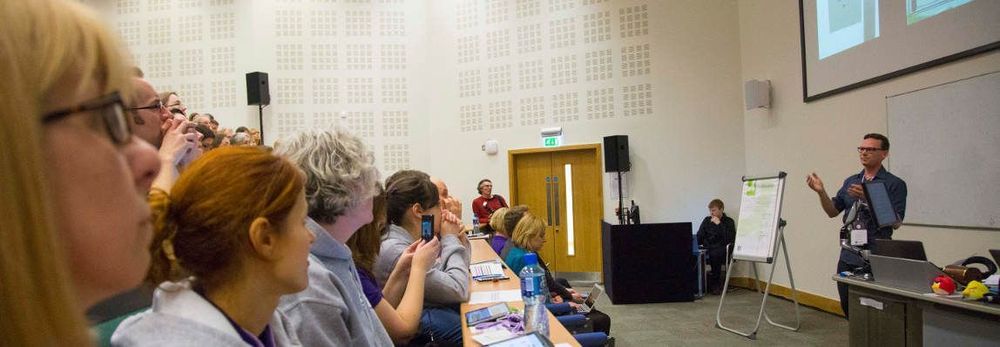
LILAC
LILAC is an annual conference covering all aspects of information literacy and is a firm favourite in the calendar of information professionals. The conference is brimming with new ideas, innovative…
buff.ly
November 6, 2025 at 10:00 AM
There’s still time to plan & submit a presentation proposal for #LILAC26. If you’re looking for inspiration, take a look at presentations from previous conferences: buff.ly/s4C8eln Our call for presentations closes in one week - Thursday 13 November (16:00 GMT) #infolit #digilit
Reposted by Karin Lach is Reading the Franklins
Irish Antarctic explorer Ernest Shackleton’s silver tea service up for sale
www.irishtimes.com/life-style/f...
www.irishtimes.com/life-style/f...

Antarctic explorer Ernest Shackleton’s silver tea service up for sale
London auction house says it would be wonderful if an Irish institution acquired the Kilkea native’s silverware
www.irishtimes.com
September 21, 2025 at 1:32 PM
Irish Antarctic explorer Ernest Shackleton’s silver tea service up for sale
www.irishtimes.com/life-style/f...
www.irishtimes.com/life-style/f...
Reposted by Karin Lach is Reading the Franklins
This week @pammckinney.bsky.social and I will be liveblogging from the European Conference on Information Literacy ecil2025.ilconf.org - look out for our posts #infolit #ecil2025 #ecil
ECIL 2025 | European Conference on Information Literacy | ECIL 2025 | European Conference on Information Literacy
ecil2025.ilconf.org
September 22, 2025 at 7:02 AM
This week @pammckinney.bsky.social and I will be liveblogging from the European Conference on Information Literacy ecil2025.ilconf.org - look out for our posts #infolit #ecil2025 #ecil
Brilliant talk on Eleanor Porden by @sampopewriter.bsky.social at National Maritime Museum tonight.

July 14, 2025 at 7:09 PM
Brilliant talk on Eleanor Porden by @sampopewriter.bsky.social at National Maritime Museum tonight.
Reposted by Karin Lach is Reading the Franklins
In honour of Bastille Day, here is an excerpt from the diary of Eleanor Porden from 22 August 1816 in which she describes the big elephant statue that is meant to be built on the site of the Bastille.
#BastilleDay #History #Paris #19thCentury
#BastilleDay #History #Paris #19thCentury


July 14, 2025 at 10:48 AM
In honour of Bastille Day, here is an excerpt from the diary of Eleanor Porden from 22 August 1816 in which she describes the big elephant statue that is meant to be built on the site of the Bastille.
#BastilleDay #History #Paris #19thCentury
#BastilleDay #History #Paris #19thCentury
Reposted by Karin Lach is Reading the Franklins
🎓 Call for Abstracts: Critical Arctic Studies Symposium 2025
📍 Rovaniemi, Finland
📅 Feb 7–9
🗓️ Deadline: June 15
Explore power, justice & representation in Arctic research. Hosted by @arcticcentre.
🔗 www.arcticcentre.org/EN/CAS-Sympo...
#CAS2025 #ArcticResearch #CriticalArcticStudies
📍 Rovaniemi, Finland
📅 Feb 7–9
🗓️ Deadline: June 15
Explore power, justice & representation in Arctic research. Hosted by @arcticcentre.
🔗 www.arcticcentre.org/EN/CAS-Sympo...
#CAS2025 #ArcticResearch #CriticalArcticStudies

Critical Arctic Studies Symposium 2025
Critical Arctic Studies Symposium 2025
www.arcticcentre.org
May 27, 2025 at 3:20 PM
🎓 Call for Abstracts: Critical Arctic Studies Symposium 2025
📍 Rovaniemi, Finland
📅 Feb 7–9
🗓️ Deadline: June 15
Explore power, justice & representation in Arctic research. Hosted by @arcticcentre.
🔗 www.arcticcentre.org/EN/CAS-Sympo...
#CAS2025 #ArcticResearch #CriticalArcticStudies
📍 Rovaniemi, Finland
📅 Feb 7–9
🗓️ Deadline: June 15
Explore power, justice & representation in Arctic research. Hosted by @arcticcentre.
🔗 www.arcticcentre.org/EN/CAS-Sympo...
#CAS2025 #ArcticResearch #CriticalArcticStudies
Reposted by Karin Lach is Reading the Franklins
Passport photos are unflattering for most of us mortals. Perhaps a better form of identification is thro' written description. See how the French described William Porden in his passport in my latest post: eleanorporden.com/2025/04/10/w... & compare this to his portrait! @derbyshiredro.bsky.social
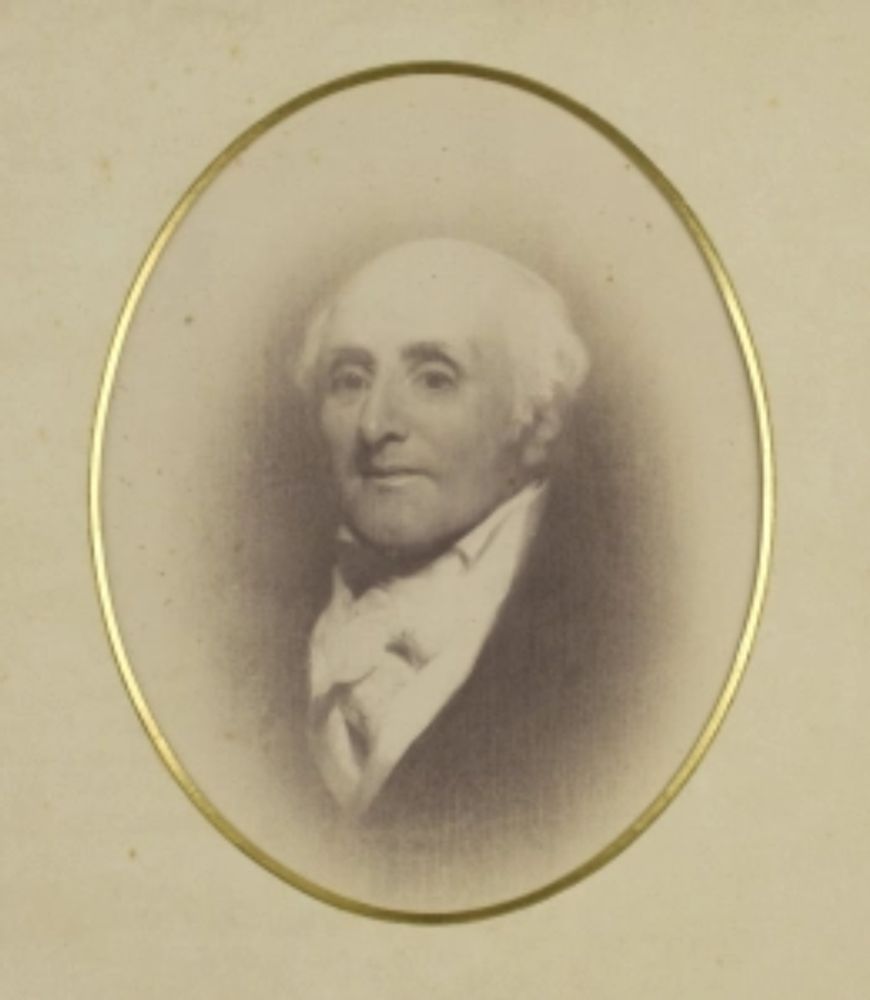
William Porden’s passport identity revealed!
While transcribing William Porden’s 1818 travel journal, I came across some details, in which he revealed how the officials at the customs house in Calais described him in his passport. I found it …
eleanorporden.com
April 10, 2025 at 1:39 PM
Passport photos are unflattering for most of us mortals. Perhaps a better form of identification is thro' written description. See how the French described William Porden in his passport in my latest post: eleanorporden.com/2025/04/10/w... & compare this to his portrait! @derbyshiredro.bsky.social
Reposted by Karin Lach is Reading the Franklins
Two Rabbits, Probably by Aert Spiering, c. 1600-1620
(British Museum)
(British Museum)

April 3, 2025 at 1:09 PM
Two Rabbits, Probably by Aert Spiering, c. 1600-1620
(British Museum)
(British Museum)
Reposted by Karin Lach is Reading the Franklins
Shortly after midnight on the 13th March, 1842, HMS Erebus and HMS Terror collided just north of the Antarctic Circle.
On HMS Erebus: the Royal Navy's bright star, Captain James Clark Ross. On HMS Terror: his dearest friend of over twenty years, Commander Francis Rawdon Moira Crozier.
On HMS Erebus: the Royal Navy's bright star, Captain James Clark Ross. On HMS Terror: his dearest friend of over twenty years, Commander Francis Rawdon Moira Crozier.

March 12, 2025 at 9:16 PM
Shortly after midnight on the 13th March, 1842, HMS Erebus and HMS Terror collided just north of the Antarctic Circle.
On HMS Erebus: the Royal Navy's bright star, Captain James Clark Ross. On HMS Terror: his dearest friend of over twenty years, Commander Francis Rawdon Moira Crozier.
On HMS Erebus: the Royal Navy's bright star, Captain James Clark Ross. On HMS Terror: his dearest friend of over twenty years, Commander Francis Rawdon Moira Crozier.
Reposted by Karin Lach is Reading the Franklins
L: "The Erebus passing through the chain of bergs, 13 Mar 1842", J.E. Davis, 1842. R: "HMS 'Erebus' passing through the chain of bergs, 1842", Richard Brydgens Beechey, 1860.


March 13, 2025 at 3:00 PM
L: "The Erebus passing through the chain of bergs, 13 Mar 1842", J.E. Davis, 1842. R: "HMS 'Erebus' passing through the chain of bergs, 1842", Richard Brydgens Beechey, 1860.
Reposted by Karin Lach is Reading the Franklins
I meant to write this way sooner, but after 6 months here's the second Fitzjames newsletter. Reflections on media & fandom, plus an update on my research: what am I doing? #NavalHistory #FranklinExpedition #TheTerror
jamesfitzjames.substack.com/p/newsletter...
jamesfitzjames.substack.com/p/newsletter...

Newsletter 2
Welcome to the second Fitzjames newsletter, in which we examine the reception of the news of the identification of Fitzjames' remains by the media & fandom. Plus a detailed update on my research!
jamesfitzjames.substack.com
March 13, 2025 at 8:40 PM
I meant to write this way sooner, but after 6 months here's the second Fitzjames newsletter. Reflections on media & fandom, plus an update on my research: what am I doing? #NavalHistory #FranklinExpedition #TheTerror
jamesfitzjames.substack.com/p/newsletter...
jamesfitzjames.substack.com/p/newsletter...
Reposted by Karin Lach is Reading the Franklins
Today I made a discovery that I barely thought possible regarding the grave of Eleanor Anne Porden/Franklin, on the two-hundredth anniversary of her burial. Huge thanks to the team at Westminster Archives for their help with this. eleanorporden.com/2025/03/01/t...

Two centuries … and a discovery
Last week I wrote a special post dedicated to Eleanor Porden’s death, two hundred years ago, on 22 February 1825. Today, 1 March, marks the two-hundredth anniversary of her funeral. It is also the …
eleanorporden.com
March 1, 2025 at 10:58 PM
Today I made a discovery that I barely thought possible regarding the grave of Eleanor Anne Porden/Franklin, on the two-hundredth anniversary of her burial. Huge thanks to the team at Westminster Archives for their help with this. eleanorporden.com/2025/03/01/t...
Reposted by Karin Lach is Reading the Franklins
The new(ish) 'umbrella' site for archive collections across Scotland is worth checking out/bookmarking despite the sad fact that not all archives have added their catalogues: it can only get better! Pleased to see it includes university collections.
yourscottisharchives.com
yourscottisharchives.com
Your Scottish Archives
Explore and discover archive collections across Scotland
yourscottisharchives.com
February 19, 2025 at 2:13 PM
The new(ish) 'umbrella' site for archive collections across Scotland is worth checking out/bookmarking despite the sad fact that not all archives have added their catalogues: it can only get better! Pleased to see it includes university collections.
yourscottisharchives.com
yourscottisharchives.com
Reposted by Karin Lach is Reading the Franklins
Visited Thomas Abernethy yesterday after a long time. His gravestone had survived another winter - no mean feat in Peterhead AND facing the sea - but this is Abernethy, whose widow would have needed a massive wall of granite to reflect his service record in the Arctic and the Antarctic alone.
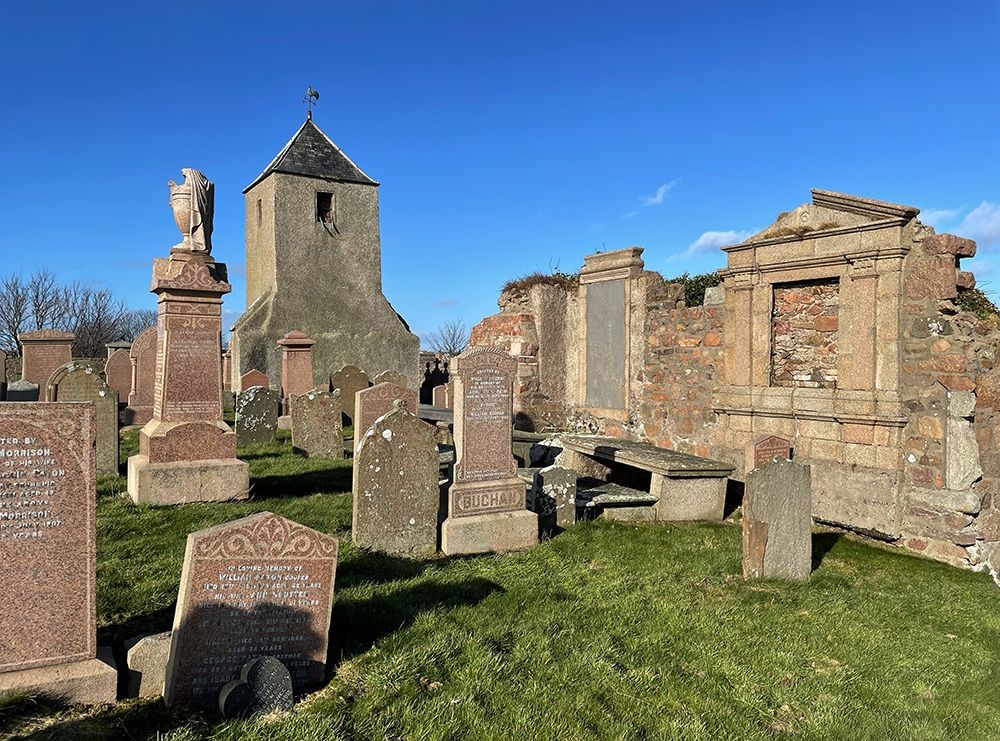
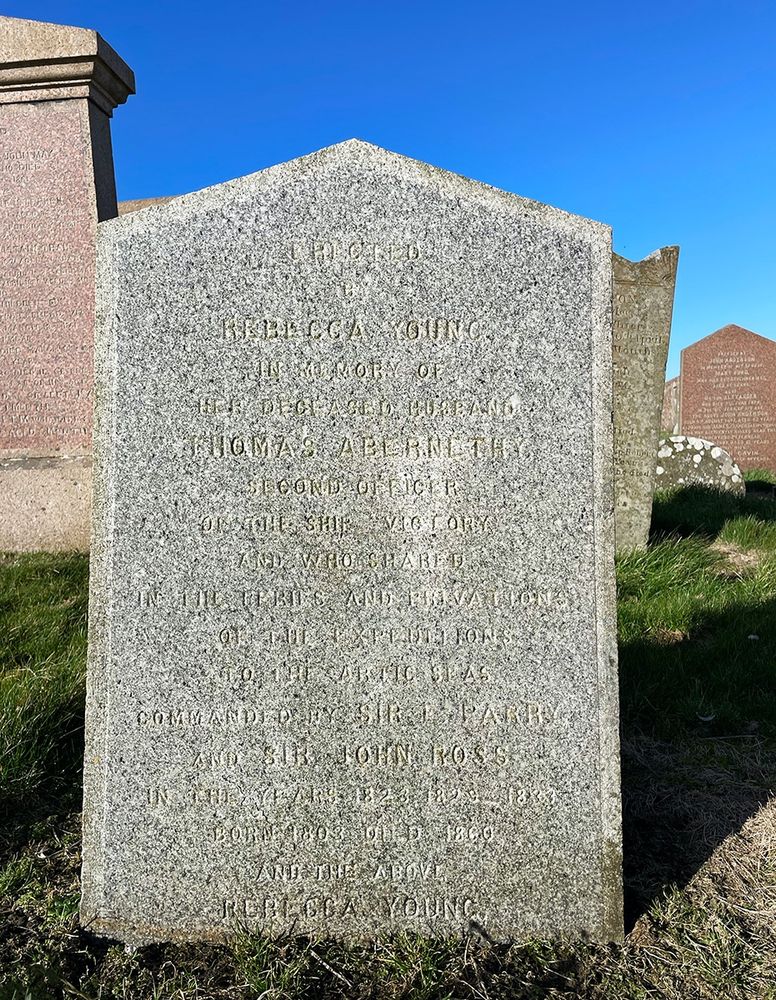
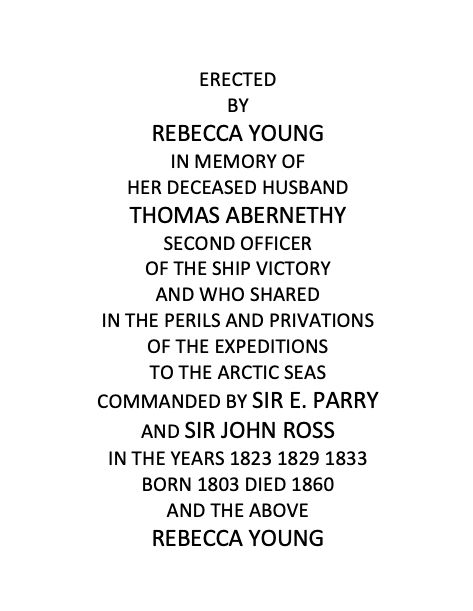
February 23, 2025 at 1:58 PM
Visited Thomas Abernethy yesterday after a long time. His gravestone had survived another winter - no mean feat in Peterhead AND facing the sea - but this is Abernethy, whose widow would have needed a massive wall of granite to reflect his service record in the Arctic and the Antarctic alone.
Reposted by Karin Lach is Reading the Franklins
#OnThisDay in 1825 the poet Eleanor Anne Porden died. A remarkably bright, witty, intelligent and compassionate woman, who was also the first wife of arctic explorer #SirJohnFranklin. It would be two months before he received the devastating news: recordoffice.wordpress.com/2019/04/23/s...
#EYALove
#EYALove

Sir John Franklin’s loss
At 7 p.m. on 22 April 1825 the Arctic explorer John Franklin received the tragic news of the death of his first wife Eleanor. He was then at Penetanguishene on the shore of Lake Huron, now in the …
recordoffice.wordpress.com
February 22, 2025 at 11:29 AM
#OnThisDay in 1825 the poet Eleanor Anne Porden died. A remarkably bright, witty, intelligent and compassionate woman, who was also the first wife of arctic explorer #SirJohnFranklin. It would be two months before he received the devastating news: recordoffice.wordpress.com/2019/04/23/s...
#EYALove
#EYALove
Reposted by Karin Lach is Reading the Franklins
Two hundred years ago today, poet Eleanor Anne Franklin (nee Porden) died. On my blog today, I look at how her husband John Franklin remembered her while on his second overland expedition in Northern Canada. eleanorporden.com/2025/02/22/t... RIP, Eleanor. @derbyshiredro.bsky.social

Two Hundred Years Ago Today…
Portrait of Eleanor Anne Porden, by Richard Westall Exactly two hundred years ago today, on 22 February 1825, Eleanor Anne Franklin (née Porden) died in the same house – 55 Devonshire Street,…
eleanorporden.com
February 22, 2025 at 10:06 AM
Two hundred years ago today, poet Eleanor Anne Franklin (nee Porden) died. On my blog today, I look at how her husband John Franklin remembered her while on his second overland expedition in Northern Canada. eleanorporden.com/2025/02/22/t... RIP, Eleanor. @derbyshiredro.bsky.social
A most beautifully written account of John Franklin's response to his first wife's death.
Two hundred years ago today, poet Eleanor Anne Franklin (nee Porden) died. On my blog today, I look at how her husband John Franklin remembered her while on his second overland expedition in Northern Canada. eleanorporden.com/2025/02/22/t... RIP, Eleanor. @derbyshiredro.bsky.social
February 23, 2025 at 10:34 AM
A most beautifully written account of John Franklin's response to his first wife's death.
Reposted by Karin Lach is Reading the Franklins
New to me! Lady Franklin to Capt. Erasmus Ommanney, 1850: "I am extremely obliged by your wish to have my portrait - pray tell your officers so also - but I have not indeed one to give you - the only one was taken on board the Erebus by my husband" Perhaps they will find it! #FranklinExpedition
![Lady Franklin to Captain Erasmus Ommanney, April/May 1850 [EO/3/1/a, RGS]
"I am extremely obliged by your wish to have my portrait - pray tell your officers so also - but I have not indeed one to give you - the only one was taken on board the Erebus by my husband, done by the same artist ^who did his^, & at the same period -"](https://cdn.bsky.app/img/feed_thumbnail/plain/did:plc:7oi3yb5ih4izlrlhovvbph2n/bafkreibo3vpxnteag7gttzq6o3x7oeswygbibu7z4tj4ipxqxnw4kahsra@jpeg)
January 29, 2025 at 4:59 PM
New to me! Lady Franklin to Capt. Erasmus Ommanney, 1850: "I am extremely obliged by your wish to have my portrait - pray tell your officers so also - but I have not indeed one to give you - the only one was taken on board the Erebus by my husband" Perhaps they will find it! #FranklinExpedition






